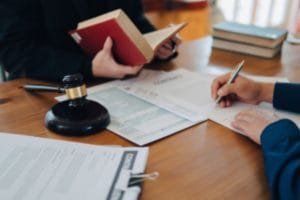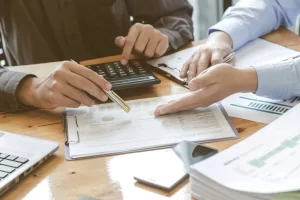Buying a home in Spain is an important decision that involves knowing a series of rules and complying with various requirements. This process can seem complicated, especially if it is the first time you are embarking on buying a home or if you come from abroad. Fortunately, with the right information and a little guidance, this path can be much simpler and safer.
In this article from the law firm Ignacio García Taboada, we are going to detail everything you need to know to buy your new home in Spain. From the initial steps to the final formalities, including the legal and tax aspects that you cannot overlook.
Why Spain is an attractive destination for buying a home
Spain has become one of the preferred destinations for home buying, both by residents and foreigners. The reason is clear: it offers an unrivalled combination of favourable climate, rich culture, geographical diversity and a quality of life that is often cited as one of the best in the world. But it is not just the lifestyle that attracts buyers from around the globe; Spain also presents real estate investment opportunities with good potential for appreciation and profitability.
The Spanish real estate market offers options for all tastes and budgets, from flats in bustling cities to quiet rural homes or luxury villas on the coast.In addition, the strength of the Spanish legal framework provides security for investors and facilitates the process of acquiring property.With the right advice and understanding of the necessary formalities, buying a property here can be a transparent and cost-effective process.
Understanding the Spanish Property Market
Understanding the Spanish property market is essential before embarking on a property purchase.This market is as diverse as the country itself, with particularities varying from coastal areas to large cities and rural areas. When contemplating buying property in Spain, it is essential to familiarise yourself with the different types of properties available, the average prices in the areas of interest and current market trends.
It is equally important to be aware of the requirements for buying a home, which can include everything from obtaining a NIE (Foreigner’s Identification Number), to understanding property purchase taxes and the additional costs involved in buying or selling a flat or house. The steps to buying a home involve not only selecting the ideal home, but also navigating the home buying process.
In terms of buying and selling costs, it is vital to budget not only for the purchase price, but also for associated costs, such as notary fees, purchase taxes, and other buying and selling costs, which may vary depending on the autonomous community in which the transaction takes place. For those looking to buy a home with a mortgage, it is advisable to investigate the financing conditions in Spain and the current interest rates.
Additionally, if you are a foreigner, you should consider the requirements for buying a flat in Spain as a foreigner, which may include additional steps or specific documentation. For all these reasons, having advice on buying a house can be of great help, and in some cases, you may even need a lawyer to buy a house to ensure that all the processes are followed properly and that the current regulations are respected.
The importance of understanding local regulations
Understanding local regulations is a practical and fundamental aspect of buying a property in Spain. Sometimes the legal details can seem tedious, but they are the basis for ensuring that your purchase is safe and in order. Familiarising yourself with these regulations will help you avoid future complications and give you peace of mind that you are doing things right from the start.
Legal requirements for foreigners buying in Spain
For foreigners interested in purchasing property in Spain, there are certain legal requirements that are indispensable to ensure a smooth and legal transaction. These requirements ensure that both buyers and sellers are protected and that the transaction is carried out in accordance with Spanish law.
Obtaining the NIE: Número de Identificación de Extranjero (Foreigner’s Identification Number)
The NIE is a unique code required for almost all transactions in Spain, including the purchase of a property. It is the equivalent of a tax identification number and is required to pay the taxes associated with the purchase. Obtaining it is one of the first steps a foreign buyer must take and it is a procedure that can be carried out either in Spain or at Spanish embassies or consulates abroad.
Opening a bank account in Spain for foreigners
A Spanish bank account is necessary to handle payments related to the purchase of the property, including taxes, notary fees and payments to the seller. Many banks offer accounts specifically designed for non-residents, and opening an account is usually a straightforward process requiring NIE, passport and, in some cases, proof of employment or address.
Tax implications of buying a home
The tax implications may vary depending on whether the buyer is resident or non-resident in Spain. Apart from the VAT or Transfer Tax that applies to the purchase of the property, non-residents must take into account the Non-Resident Income Tax, which applies to properties owned in Spain. In addition, there are other annual taxes such as the Impuesto sobre Bienes Inmuebles (IBI) and local taxes that must also be considered.
These are just some of the most important tax requirements and considerations, but each situation may have its own particularities.
The process of buying a property in Spain
The process of buying a property in Spain is methodical and requires following a series of established steps to ensure the legality and security of the transaction.
Preliminary steps : From search to reservation
Before any transaction, the home buying process begins with the search for the ideal property. Once you find the house that fits your needs and budget, the next step is to make an offer and, if accepted, proceed with the reservation of the property. This involves signing a reservation document and paying a deposit to demonstrate your commitment to buy.
Earnest money contract: Commitment to purchase and sale
The earnest money contract is a preliminary agreement that sets the conditions for the sale of a flat or house. This contract is a legally binding commitment between the buyer and the seller. When signing it, a sum of money is paid which is deducted from the total price of the property. If either party withdraws from the agreement, there are financial penalties established by law.
The public deed and the registration in the Land Register
Finally, the public deed is the official document that certifies the transfer of ownership from the seller to the buyer. It must be signed before a notary and then registered in the Land Registry. This step is key, as it gives the buyer official title and legal protection against third parties. Once the property is registered, the purchase process is considered to be successfully completed.
Additional costs when buying a property
When planning the purchase of a property, it is essential to consider not only the sale price, but also the additional costs that may arise. These costs vary depending on the location and value of the property, and are essential to avoid surprises during the process.
Taxes and fees associated with buying a property
Home purchase taxes are a significant part of the additional costs. They include Transfer Tax (Impuesto de Transmisiones Patrimoniales, ITP) for second-hand properties, or VAT and Stamp Duty (Impuesto sobre Actos Jurídicos Documentados, AJD) for new homes. The amount of these taxes varies depending on the autonomous community in which the purchase is made.
Notary, registry and agency fees
Notary fees are generated by the drafting of the public deed of sale and other necessary documents. Once the deed has been signed, it is necessary to register it in the Land Registry, which also entails costs.
In addition, it may be advisable to engage the services of an agency to coordinate and supervise all these procedures, ensuring that the process is efficient and error-free. These costs are additional to the purchase price and should be considered when calculating the total purchase cost of the property.
The importance of professional advice
When it comes to buying a property in a country other than the country of origin or even within the same country, professional advice is not only advisable, but can be a decisive factor in the success of the transaction. Experts in the field can provide important knowledge and ensure that all legal and financial aspects are handled correctly.
How a specialist lawyer can facilitate the purchase
A home buying lawyer has the specific knowledge that ensures your interests are protected throughout the buying process. This includes reviewing contracts, verifying that there are no outstanding liens or encumbrances on the property, and assisting during the negotiation of the terms of sale. In addition, we can advise you on the tax implications of the purchase and ensure that all necessary documents are in order.
Real estate agency services for foreigners
For foreigners, a real estate agency can be particularly useful, as these services are designed to simplify the buying process. They can assist in obtaining a NIE, opening a bank account in Spain, and managing tax payments and fees. They can also coordinate the necessary translations and help you better understand the Spanish property market, which is vital for making well-informed decisions about buying property.
Financing the Purchase: Options for Foreigners
Purchasing a property in Spain can involve a considerable outlay, but fortunately, there are several financing options available to foreign buyers. These options are designed to facilitate the purchase and make home ownership in Spain a reality.
Mortgages in Spain for non-residents
Non-residents are able to apply for mortgages in Spain, although the conditions may differ from those for residents. Banks usually require a higher percentage down payment and may apply slightly higher interest rates. It is essential to compare offers from different banks and fully understand the terms and conditions before committing to a loan.
Tips for negotiating the best financing terms and conditions
Negotiating a good financing deal requires research and preparation. Some tips include having a good credit history, being well-informed about current interest rates and understanding the conditions of the Spanish property market. It can also be helpful to present a solid financial plan that demonstrates your ability to repay the mortgage. Don’t hesitate to seek professional financial advice to ensure you get the best possible terms for your mortgage.
Post-purchase considerations
Once you have completed the purchase of a property in Spain, there are a number of additional steps that must be taken to ensure that everything is in order. These administrative tasks are essential for establishing your presence as a new owner and for the proper maintenance of your property.
Registration in the municipal register and basic services
It is important to register in the municipal register of your locality, which is the register of inhabitants of the municipality. This procedure is necessary to access municipal services and may be required for processes such as vehicle registration or registration in the health system. In addition, you will need to register for basic services such as water, electricity, gas and internet, which involves contacting utility companies and often signing supply contracts.
Maintaining and managing your property in Spain
Regular maintenance is vital to preserve the value and habitability of your property. This includes regular care of the property, necessary repairs and periodic renovations. In addition, if you are not permanently resident in Spain, you may consider hiring a property management company to take care of daily maintenance, cleaning, security and, if you are interested, the management of short or long term rentals.
Conclusions
If you are at the stage of buying a property in Spain and would like expert advice on every step of the process, at Garcia Taboada Law Firm we have a specialised team that can help you. From understanding local regulations to negotiating the best financing for you, and managing your property post-purchase, our professionals are ready to offer you a comprehensive and personalised service.
Don’t hesitate to contact us to ensure that your property investment is safe, efficient and tailored to your needs. We are here to help you make your property purchase in Spain a reality.





